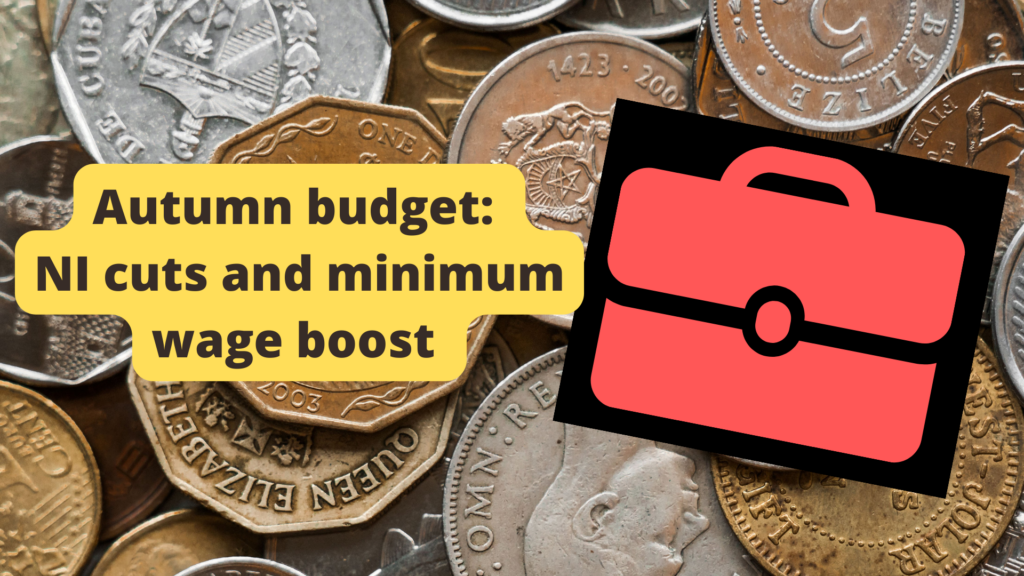
On Wednesday November 22 Jeremy Hunt presented the Autumn budget. He set out his priorities as to avoid major spending, but to cut taxes and ‘reward hard work’ with numerous changes to business tax and allowances.
Mr Hunt announced that the UK economy is set to grow by 0.6% in the current year, according to forecasts from the Office for Budget Responsibility. It then expects the economy to grow by 0.7% next year. GDP is forecast to rise by 1.4% in 2025, 1.9% in 2026 and 2.0% in 2027.
Below, we explore the announcements from the Budget that will affect small businesses.
Inflation expected to fall
Inflation is expected to fall to 2.8% by the end of 2024 according to the spending watchdog, down from 11.1% last year when Hunt and Rishi Sunak took office.
National living wage up by more than £1 an hour
The national living wage will increase from April to £11.44, and will be extended to 21-year-olds.
Benefits will be increased by 6.7%, although there will be tougher requirements for unemployed people to look for work. The state pension will be increased by 8.5%.
Cuts to National Insurance
“High taxes discourage work”, said Mr Hunt, and that the combination of national insurance plus income tax means people pay a 32% marginal tax rate.
The main rate for employee national insurance will be cut from 12% to 10%, potentially benefiting 27 million people to the tune of c.£450 a year on average earnings.
This change will be brought in from 6 January 2024.
Class 2 National Insurance abolished
Class 2 national insurance, which is paid by the self-employed, will be stopped. This will save almost two million individuals £192 per year.
The self-employed also pay class 4 national insurance at 9%, which will reduce to 8%. Taken together, these measures will save self-employed workers £350.
Small business support
Mr Hunt said that as a one-time small business owner, he wants to support this sector.
Recognising that SMEs want bills paid on time, he said that firms bidding for government contracts can expect bills to be paid within 55 days at first, and then within 30 days.
The 75% business rates discount for hospitality, retail and leisure is being extended for another year, at a cost of £4.3bn.
Investment in strategic manufacturing
Hunt also announced plans to make available £4.5bn over five years to attract investment into certain manufacturing sectors. This will include money for electric cars and life sciences.
The investments are aimed at keeping the UK competitive in sectors where it leads, and drive innovation in others.
Full expensing made permanent
Hailing full expensing a success, Mr Hunt announced that it would be made permanent. Companies that invest in the UK will reduce their tax by up to 25p for every £1 spent on plants and machinery.
12 investment zones for the UK
Tax reliefs for freeports and investment zones are being extended from five years to 10 years. New investment zones will be created in the West Midlands, East Midlands and Greater Manchester. These could bring in private investment of £3bn and 65,000 jobs.
Want to explore in more detail what the latest rules will mean for you or your business? As leading small business accountants in the Lune Valley we’re happy to advise. Get in touch with us today.

